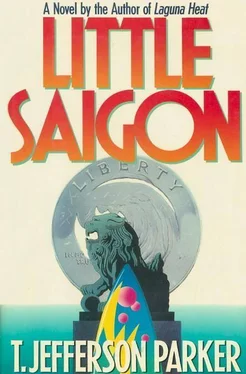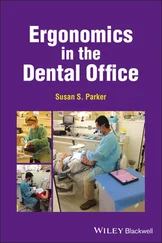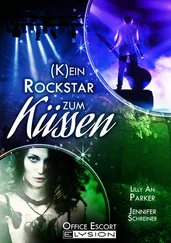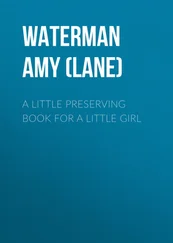“Let her go!” screamed Bennett. “Lam, let her go!” Thach lifted his cane toward the helicopter and the men began to move.
Bennett charged toward Thach, but the guard stepped forward again and drove his gun butt into Bennett’s chest. Frye was amazed at the speed with which Bennett’s hands locked around the gun and yanked it away. The guard’s head jerked back as the blast echoed through the hangar. When Li’s guard leveled his automatic, Frye shot him in the chest, rocking him back as his gun clattered to the floor. Frye saw the bright muzzle flash of the third guard’s weapon, heard the rounds sucking past his head, felt the wooden splinters of the boxes spraying into his face as the rounds split them apart. Li drove at him, head lowered. Frye dove to the ground, rolled into the open, and fired off two rounds as fast as he could. The off-balance soldier spun and landed face down. Bennett sat in the cone of light, his weapon raised toward Thach. The colonel stood just on the edge of darkness, resting on his cane, his pistol drawn and aimed down at Bennett. Later, Frye would realize that some acknowledgement took place between them there, some admission that this was the only true end to which it all could come. Then a quick, vicious volley, each one firing orange comets into the other while Frye tried to sight around Li. Thach’s cane flew. Bennett shuddered with each impact. But they both kept firing and punching holes in each other while ropes of blood lurched and wobbled into the light and Li screamed and Frye wondered how they could stay alive enough to kill each other anymore. Then, just as he had a clear shot, it was over, and the terrible quiet descended. The colonel lay on his back. Li was hovering over Bennett. Frye stood amidst the haze of gun-smoke, confronted by a silence more complete than he had ever known, a stillness into which everything was sucked, inhaled, consumed. The air was heavy with the particulate stink of powder. The lamp beam swung gently as the smoke rose into the light. Outside, the wind gusted.
Still be with us, brother. Please.
As Frye came close he could hear his brother’s little gasps, quick and shallow as if taken at high altitude. He untied Li’s wrists and ankles. Bennett was on his back. Thach lay fallen in the shadows.
Bennett looked up. The peace in his eyes bore no relation to the rapid lifting and falling of his chest. Li knelt beside him. Bennett blinked, moved his eyes slowly from his brother to his wife, blinked again. That was all.
Li placed a hand on either side of his face and lowered her head to his chest.
Frye knelt there a long while, shivering cold in the hot night air. He still had Bennett’s .45 in his hand. He picked up the silver wave necklace he’d given to Bennett, that Bennett had given to Lam, that Thach had given back, passed from one hand to the other like a gift of death, Li had begun to keen — a high, faint moan that seemed to come from everywhere in the room at once.
He finally stood, moving as in a dream, stuffing the .45 into his belt. Li was wailing louder now. She turned to him, then looked at the weapon that lay beside her, her eyes a pit of desperation so deep and complete and understandable that he wondered if she would ever really see out of them again. He lifted her gently from the floor. “Come with me.”
She looked at him, then back to the gun. He guided her toward the hangar door, then off across the desert toward his car.
It was the longest walk of his life.
They drove the dirt road back, following the tracks of Bennett’s van. The wind howled, driving sand against the Mercury, easing him to the right. Fifty yards from the hangar, Frye heard the engine of the helicopter groan faintly to life against the wind.
The rotors began to move, and its lights shot into the darkness. As Frye swung his car toward it, he could see Thach hunched awkwardly in the cockpit, working the controls. Frye slid to a stop in the sand, tumbled out, and pulled the automatic from his belt. He drew down and fired, the gun barrel swaying with the wind. A swirling cloud of sand engulfed the chopper, then dispersed. Frye fired again. The rotors spun and the lights shone off into the darkness, but now the cockpit was empty. He pushed Li behind the car and told her to stay.
Frye approached the ‘copter’s door from behind, on the passenger’s side. Above him, the blades were slowing. He stood by the door, struck momentarily by the idea that all he wanted to do here was kill this man; it was all that mattered now, all he could think about. Two shots, he thought: I’ve got two left.
He steadied the gun before him, jumped to the door, and aimed through the window. Inside, red lights blipped, instruments gave their bright read-outs, the harness swayed free in the vacant, blood-smeared pilot’s station. Through the open door on the far side, he could see Thach, a hundred feet away already, laboring over a hillock, then disappearing in a cloud of dust and wind.
He ran back to the car and found Li right where he had left her. She looked up at him, a hint of clarity in her eyes now. “I’ll stay here. Good luck, em. He can’t go far.”
This time, he’s mine, Frye thought. He got a flashlight from the trunk of his car, then leaned into the wind after Thach.
He made the hill in a matter of seconds. It overlooked a wide arroyo, pale in the middle, peopled on its flanks by the shapes of yucca that materialized, then faded back into the darkness. Frye saw movement at the rim of the gully, a lurching motion that became fainter the harder he looked at it. He’s shot and bleeding, Frye thought. He’s crippled. I know where he’s going.
Frye plodded into the heavy sand of the wash and followed. He saw Thach twice more — flashes of motion in the dark — and each time, he was a little closer. Where the gully bent north, Frye marched on, using his flashlight. Thach’s blood, dark and heavy as old oil, led up the embankment and out of the channel. Frye scrambled up the loose side of the arroyo and followed the shiny trail to the foot of a steep hill.
The old wooden framework was partially collapsed, sagging around the cavern entrance. Sheets of decayed plywood, used once to block the hole, were torn down and strewn around it. Obscenities were spray-painted on a huge boulder that sat at the mouth. Beneath the words and the graffiti, Frye could make out the words SIDEWINDER MINE — DANGER! NO TRESPASSING.
As he stood and looked into the black hole, he could feel the pressure gathering upon him, the slow squeeze of walls and darkness, the frantic terror of enclosure. Everything of Frye, from his heart to his fingertips, told him no. Everything except that voice deep in the center of himself, the voice that had led him to some of the very worst moments of his life, the voice that would simply never take no as an answer, on principle, on faith. Thach’s blood shone on the stones, glimmering in the beam of the flashlight.
For Benny, he thought. For Li. For me.
He took a deep breath, felt a clammy chill break over his scalp, and ducked inside. Five steps in, and the world went silent. The air was cool, damp, heavy. With the flashlight he could see twenty feet ahead at best, to where the cavern narrowed and turned to the right. The floor was gravel — dark and ferric — that shifted and crunched as he made his way to the turn. His face was cold now, his body beginning to shiver with the sweat that oozed through his clothes. He rounded the corner.
The shaft led down to another bend that went left. The silence deepened; the echoes of the gravel under his feet rose against the walls and seemed to both follow and precede his steps at the same time. He sat, quietly as he could, and pulled off his shoes.
The rocks bit into his feet, but, stepping deliberately and slowly, Frye found he could move with hardly a sound. Or was it just his heart roaring in his ears that drowned the lesser noise, that same pressurized howl he felt when he went under in the waves and the world locked around him like a coffin?
Читать дальше












